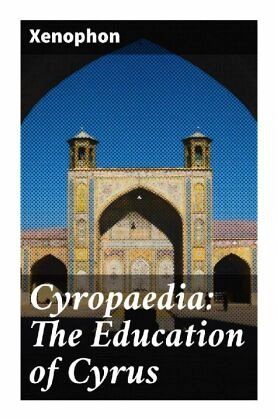
Cyropaedia: The Education of Cyrus

PAYBACK Punkte
5 °P sammeln!
Xenophon's "Cyropaedia: The Education of Cyrus" stands as a seminal work blending historical narrative with philosophical discourse. This text chronicles the life and education of Cyrus the Great, the founder of the Persian Empire, and offers insights into leadership, governance, and moral character. Written in a straightforward yet eloquent style, the work navigates the realms of history and idealism, constructing an image of Cyrus not merely as a conqueror but as a wise king molded by exemplary virtues. This synthesis of biography and political philosophy places the Cyropaedia within the lar...
Xenophon's "Cyropaedia: The Education of Cyrus" stands as a seminal work blending historical narrative with philosophical discourse. This text chronicles the life and education of Cyrus the Great, the founder of the Persian Empire, and offers insights into leadership, governance, and moral character. Written in a straightforward yet eloquent style, the work navigates the realms of history and idealism, constructing an image of Cyrus not merely as a conqueror but as a wise king molded by exemplary virtues. This synthesis of biography and political philosophy places the Cyropaedia within the larger context of classical literature, influenced by both Herodotus and Plato while also setting the stage for future political thought. Xenophon, an Athenian historian, soldier, and student of Socrates, drew on a rich tapestry of experiences and intellectual influences in crafting this work. His military background, coupled with his interactions with Persian culture during his exile, informedhis portrayal of leadership as rooted in moral integrity and wisdom. The Cyropaedia reflects Xenophon's own ideals of virtuous governance, mirroring his aspirations in a tumultuous period of Greek history. For readers interested in the intersections of history, philosophy, and political theory, Xenophon's "Cyropaedia" serves as a profound exploration of leadership and ethical governance. This timeless text not only enriches our understanding of ancient Persia but also continues to resonate with contemporary discussions around leadership ideals. It is a compelling read for anyone eager to engage with themes of virtue, power, and the art of ruling.













